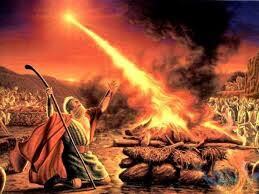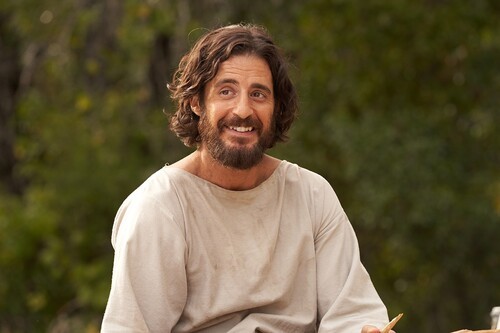Sunday Sermon Recap
The Showdown: When God Shows Up and Shows Out- February 22, 2026
Have you ever felt like you were standing at a crossroads, unsure which direction to take? Perhaps you've found yourself wavering between two opinions, unable to fully commit to either path. This internal struggle is as old as humanity itself, and it's precisely the dilemma that confronted an entire nation on a mountaintop thousands of years ago.
The Question That Demands an Answer
"How long will you falter between two opinions?" This piercing question cut through the crowd gathered on Mount Carmel. It wasn't just a rhetorical inquiry—it was a challenge that demanded a response. If the Lord is God, follow Him. But if Baal is god, then follow him instead.
The silence that followed was deafening.
Sometimes the most revealing response is no response at all. The people stood mute, unable or unwilling to declare their allegiance. They wanted to keep their options open, to hedge their bets, to maintain a foot in both worlds. Sound familiar?
In our modern context, we might not bow to carved images of Baal, but we certainly have our own pantheon of false gods. We turn to the prosperity god when we need financial breakthrough. We worship at the altar of success when we want recognition. We seek comfort in the fertility gods of our culture when we long for fulfillment. And all the while, we try to maintain a respectable relationship with the one true God—just in case.
This wishy-washy faith is exactly what was being confronted on that mountain.
The Challenge
The setup was simple but dramatic: two altars, two sacrifices, no fire. Whichever god answered with fire would prove himself to be the true God. It seemed like a fair test, especially since Mount Carmel was the home turf of Baal worship. The false prophets would have every advantage.
From nine in the morning until noon, 450 prophets of Baal cried out to their god. "Baal, reveal yourself!" they shouted. They danced around their altar with increasing intensity, believing that perhaps their god just needed more enthusiasm, more passion, more effort.
When nothing happened, they tried harder. They leaped higher. They shouted louder. By afternoon, in their desperation, they even cut themselves until blood gushed out, hoping that their sacrifice of pain would finally get Baal's attention.
But there was no voice. No one answered. No one paid attention.
The scene is almost tragic in its futility. Here were hundreds of people pouring out their energy, their blood, their very lives for a god who simply wasn't there. And as the hours dragged on, the crowd that had gathered with such anticipation began to drift away, one by one, realizing there was nothing to see.
When God Takes the Stage
After the false prophets had exhausted themselves, it was time for the real showdown. But instead of making things easier, the challenge was made exponentially harder. First, the altar of the Lord was repaired—built with twelve stones representing the twelve tribes of Israel, a reminder of who they were supposed to be as God's people.
Then came the sacrifice: a bull cut into pieces and laid on the wood. But here's where things got interesting.
Four large water pots were filled and poured over the sacrifice and the wood. Then it was done again. And again. Somewhere between twenty-four and forty-eight gallons of water soaked everything, running down into a trench that had been dug around the altar.
From a human perspective, this made no sense whatsoever. Why waterlog everything you're hoping will catch fire? But that's precisely the point. When God shows up, He doesn't need ideal conditions. He doesn't need our help. He doesn't need us to make things easier for Him.
The prayer that followed was simple and profound: "Lord God of Abraham, Isaac, and Israel, let it be known this day that You are God in Israel, and I am Your servant. Hear me, O Lord, hear me, that these people may know that You are the Lord and that You have turned their hearts back to You again."
Notice the focus of this prayer. It wasn't about personal glory or vindication. It wasn't even primarily about proving the false prophets wrong. It was about God being glorified and people's hearts being turned back to Him.
And then fire fell from heaven.
Not just a small flame, but fire that consumed the sacrifice, the wood, the stones, the dust, and licked up all the water in the trench. When God shows up, He shows out.
The Response That Changes Everything
When the people saw this demonstration of God's power, they fell on their faces and cried out, "The Lord, He is God! The Lord, He is God!"
Finally, they got it. Finally, they were willing to take a stand. Finally, they stopped faltering between two opinions.
But here's what we need to understand: none of this would have happened without faithful obedience. The entire showdown, the entire demonstration of God's power, the entire turning of the nation's heart back to God—it all hinged on one person being willing to say "yes" when God said "go."
There was no questioning, no negotiating, no trying to find someone better qualified. Just simple, radical obedience.
What About Us?
So where does this leave us today? We may not be standing on Mount Carmel, but we're definitely standing at a crossroads. The question remains as relevant now as it was then: How long will we falter between two opinions?
Will we be the type of followers who come to church on Sunday and say "Praise the Lord," but live like the world the rest of the week? Will we worship God when it's convenient but turn to our modern-day Baals when we have real needs? Will we keep one foot in the kingdom and one foot in the world, hoping we can somehow maintain both?
Or will we take a stand?
God is calling for people who will be bold in their faith—not just within the walls of a church building, but in their homes, their workplaces, their schools, and their communities. He's calling for people who will stop being wishy-washy and start being fully committed.
The good news is that we serve a God who can rain down fire from heaven. There is nothing He cannot do in our lives. No situation is too difficult. No heart is too hard. No circumstance is too complicated.
But here's the challenge: Are we willing to pray big prayers? Are we willing to trust Him completely? Are we willing to surrender fully?
Don't restrict or limit what God can do. Don't settle for small prayers and safe faith. Swing for the fences. Call upon Him to show up and show out in your life, to do what only He can do.
If you're hoping to see someone saved, don't give up—keep praying. If there's something in your life you're wanting to see God do, cry out to Him. There's no limit to what He can accomplish through a life that's fully surrendered to Him.
The question remains: Which side of the line will you stand on?
The Question That Demands an Answer
"How long will you falter between two opinions?" This piercing question cut through the crowd gathered on Mount Carmel. It wasn't just a rhetorical inquiry—it was a challenge that demanded a response. If the Lord is God, follow Him. But if Baal is god, then follow him instead.
The silence that followed was deafening.
Sometimes the most revealing response is no response at all. The people stood mute, unable or unwilling to declare their allegiance. They wanted to keep their options open, to hedge their bets, to maintain a foot in both worlds. Sound familiar?
In our modern context, we might not bow to carved images of Baal, but we certainly have our own pantheon of false gods. We turn to the prosperity god when we need financial breakthrough. We worship at the altar of success when we want recognition. We seek comfort in the fertility gods of our culture when we long for fulfillment. And all the while, we try to maintain a respectable relationship with the one true God—just in case.
This wishy-washy faith is exactly what was being confronted on that mountain.
The Challenge
The setup was simple but dramatic: two altars, two sacrifices, no fire. Whichever god answered with fire would prove himself to be the true God. It seemed like a fair test, especially since Mount Carmel was the home turf of Baal worship. The false prophets would have every advantage.
From nine in the morning until noon, 450 prophets of Baal cried out to their god. "Baal, reveal yourself!" they shouted. They danced around their altar with increasing intensity, believing that perhaps their god just needed more enthusiasm, more passion, more effort.
When nothing happened, they tried harder. They leaped higher. They shouted louder. By afternoon, in their desperation, they even cut themselves until blood gushed out, hoping that their sacrifice of pain would finally get Baal's attention.
But there was no voice. No one answered. No one paid attention.
The scene is almost tragic in its futility. Here were hundreds of people pouring out their energy, their blood, their very lives for a god who simply wasn't there. And as the hours dragged on, the crowd that had gathered with such anticipation began to drift away, one by one, realizing there was nothing to see.
When God Takes the Stage
After the false prophets had exhausted themselves, it was time for the real showdown. But instead of making things easier, the challenge was made exponentially harder. First, the altar of the Lord was repaired—built with twelve stones representing the twelve tribes of Israel, a reminder of who they were supposed to be as God's people.
Then came the sacrifice: a bull cut into pieces and laid on the wood. But here's where things got interesting.
Four large water pots were filled and poured over the sacrifice and the wood. Then it was done again. And again. Somewhere between twenty-four and forty-eight gallons of water soaked everything, running down into a trench that had been dug around the altar.
From a human perspective, this made no sense whatsoever. Why waterlog everything you're hoping will catch fire? But that's precisely the point. When God shows up, He doesn't need ideal conditions. He doesn't need our help. He doesn't need us to make things easier for Him.
The prayer that followed was simple and profound: "Lord God of Abraham, Isaac, and Israel, let it be known this day that You are God in Israel, and I am Your servant. Hear me, O Lord, hear me, that these people may know that You are the Lord and that You have turned their hearts back to You again."
Notice the focus of this prayer. It wasn't about personal glory or vindication. It wasn't even primarily about proving the false prophets wrong. It was about God being glorified and people's hearts being turned back to Him.
And then fire fell from heaven.
Not just a small flame, but fire that consumed the sacrifice, the wood, the stones, the dust, and licked up all the water in the trench. When God shows up, He shows out.
The Response That Changes Everything
When the people saw this demonstration of God's power, they fell on their faces and cried out, "The Lord, He is God! The Lord, He is God!"
Finally, they got it. Finally, they were willing to take a stand. Finally, they stopped faltering between two opinions.
But here's what we need to understand: none of this would have happened without faithful obedience. The entire showdown, the entire demonstration of God's power, the entire turning of the nation's heart back to God—it all hinged on one person being willing to say "yes" when God said "go."
There was no questioning, no negotiating, no trying to find someone better qualified. Just simple, radical obedience.
What About Us?
So where does this leave us today? We may not be standing on Mount Carmel, but we're definitely standing at a crossroads. The question remains as relevant now as it was then: How long will we falter between two opinions?
Will we be the type of followers who come to church on Sunday and say "Praise the Lord," but live like the world the rest of the week? Will we worship God when it's convenient but turn to our modern-day Baals when we have real needs? Will we keep one foot in the kingdom and one foot in the world, hoping we can somehow maintain both?
Or will we take a stand?
God is calling for people who will be bold in their faith—not just within the walls of a church building, but in their homes, their workplaces, their schools, and their communities. He's calling for people who will stop being wishy-washy and start being fully committed.
The good news is that we serve a God who can rain down fire from heaven. There is nothing He cannot do in our lives. No situation is too difficult. No heart is too hard. No circumstance is too complicated.
But here's the challenge: Are we willing to pray big prayers? Are we willing to trust Him completely? Are we willing to surrender fully?
Don't restrict or limit what God can do. Don't settle for small prayers and safe faith. Swing for the fences. Call upon Him to show up and show out in your life, to do what only He can do.
If you're hoping to see someone saved, don't give up—keep praying. If there's something in your life you're wanting to see God do, cry out to Him. There's no limit to what He can accomplish through a life that's fully surrendered to Him.
The question remains: Which side of the line will you stand on?

Five Day Reading Plan
5-Day Devotional: Standing Firm in Faith
Day 1: The Power of Obedience
Reading: 1 Kings 18:1-15
Devotional: Elijah's story reminds us that God's most powerful works often begin with simple obedience. When God told Elijah to go to King Ahab, he didn't hesitate despite the danger. Obedience isn't always comfortable—sometimes God calls us to uncomfortable places, difficult conversations, or challenging circumstances. But like Elijah, our faithfulness in following God's direction positions us to witness His miraculous provision and power.
Today, consider where God might be calling you to step out in faith. Is there a conversation you've been avoiding? A ministry opportunity you've been hesitant about? A relationship that needs reconciliation? Remember, God doesn't call the equipped; He equips the called. Your willingness to say "yes" to God, even when it's inconvenient or scary, creates space for Him to work powerfully through your life.
Reflection Question: What is one area where God is asking you to be obedient, and what's holding you back?
Day 2: Stop Faltering Between Two Opinions
Reading: 1 Kings 18:16-24; Joshua 24:14-15
Devotional: Elijah's challenge to Israel cuts to the heart of authentic faith: "How long will you falter between two opinions?" The Israelites wanted to worship God on Sunday but turned to Baal when they needed something specific. Sound familiar? We often do the same—praising God in church but living for ourselves the rest of the week, seeking God's blessing while pursuing worldly ambitions.
God doesn't want part-time followers. He desires wholehearted devotion. Wishy-washy faith dishonors God and leaves us spiritually empty. When we try to serve two masters, we end up serving neither well. The people stood silent when challenged because they knew they were divided. Today, God is drawing a line in the sand for you, too. Will you choose to follow Him completely, or will you continue trying to straddle two worlds?
Reflection Question: In what areas of your life are you being "wishy-washy" in your faith commitment?
Day 3: God Shows Up and Shows Out
Reading: 1 Kings 18:25-40; Psalm 115:1-8
Devotional: When God's moment came, He didn't just light the sacrifice—He consumed everything: the bull, the wood, the stones, the dust, and even the water. God doesn't do things halfway. While the prophets of Baal cried out for hours with no response, Elijah prayed one simple prayer, and fire fell from heaven. This wasn't about Elijah's eloquence or effort; it was about God's power and faithfulness.
The contrast is striking: false gods require frantic effort and self-harm but deliver nothing. The true God responds to simple, faithful prayer with overwhelming power. When we trust in anything other than God—money, relationships, success, comfort—we're like those prophets crying out to deaf idols. But when we call on the living God with sincere hearts, He responds. You don't need to perform or prove yourself. You need to trust the God who shows up when you call.
Reflection Question: What "false gods" are you crying out to that can never truly satisfy your soul?
Day 4: Never Stop Praying
Reading: 1 Kings 18:41-46; Luke 18:1-8
Devotional: Even after God promised rain, Elijah prayed seven times before seeing the cloud. This teaches us something profound: prayer isn't about informing God or twisting His arm—it's about aligning our hearts with His purposes and persevering in faith. Elijah knew God would send rain, yet he still prayed intensely. Prayer changes us even as it invites God's power into our circumstances.
Many of us give up too quickly. We pray once or twice and then assume God isn't listening. But persistent prayer demonstrates faith, deepens our dependence on God, and prepares us to receive what He wants to give. We've seen marriages restored through prayer, prodigals return through prayer, bodies healed through prayer, and souls saved through prayer. Whatever you're facing today—don't stop praying. The breakthrough may be one prayer away. Keep seeking God's face, keep trusting His timing, and keep believing He hears you.
Reflection Question: What situation have you stopped praying about that God is calling you to bring before Him again?
Day 5: My Father Has It
Reading: Matthew 6:25-34; Philippians 4:19
Devotional: Throughout Elijah's journey, God proved Himself faithful—providing through ravens, multiplying a widow's oil and flour, answering with fire, and sending rain. God never failed to supply what was needed when it was needed. This is the character of our heavenly Father: He has everything we need, and He delights in providing for His children.
The song declares, "Everything I need, my Father has it." Do you believe that? Not just intellectually, but in the depths of your soul? When you're worried about finances, relationships, health, or the future, do you trust that your Father has it covered? God's provision isn't limited by your circumstances or bank account. He's not empty-handed. He gives blessings upon blessings. Today, seek first His kingdom, trust His love, and rest in the truth that the same God who provided for Elijah, who sent fire from heaven, who knows when a sparrow falls—He knows exactly what you need, and He will provide.
Reflection Question: What specific need are you struggling to trust God with, and how can you surrender it to Him today?
Day 1: The Power of Obedience
Reading: 1 Kings 18:1-15
Devotional: Elijah's story reminds us that God's most powerful works often begin with simple obedience. When God told Elijah to go to King Ahab, he didn't hesitate despite the danger. Obedience isn't always comfortable—sometimes God calls us to uncomfortable places, difficult conversations, or challenging circumstances. But like Elijah, our faithfulness in following God's direction positions us to witness His miraculous provision and power.
Today, consider where God might be calling you to step out in faith. Is there a conversation you've been avoiding? A ministry opportunity you've been hesitant about? A relationship that needs reconciliation? Remember, God doesn't call the equipped; He equips the called. Your willingness to say "yes" to God, even when it's inconvenient or scary, creates space for Him to work powerfully through your life.
Reflection Question: What is one area where God is asking you to be obedient, and what's holding you back?
Day 2: Stop Faltering Between Two Opinions
Reading: 1 Kings 18:16-24; Joshua 24:14-15
Devotional: Elijah's challenge to Israel cuts to the heart of authentic faith: "How long will you falter between two opinions?" The Israelites wanted to worship God on Sunday but turned to Baal when they needed something specific. Sound familiar? We often do the same—praising God in church but living for ourselves the rest of the week, seeking God's blessing while pursuing worldly ambitions.
God doesn't want part-time followers. He desires wholehearted devotion. Wishy-washy faith dishonors God and leaves us spiritually empty. When we try to serve two masters, we end up serving neither well. The people stood silent when challenged because they knew they were divided. Today, God is drawing a line in the sand for you, too. Will you choose to follow Him completely, or will you continue trying to straddle two worlds?
Reflection Question: In what areas of your life are you being "wishy-washy" in your faith commitment?
Day 3: God Shows Up and Shows Out
Reading: 1 Kings 18:25-40; Psalm 115:1-8
Devotional: When God's moment came, He didn't just light the sacrifice—He consumed everything: the bull, the wood, the stones, the dust, and even the water. God doesn't do things halfway. While the prophets of Baal cried out for hours with no response, Elijah prayed one simple prayer, and fire fell from heaven. This wasn't about Elijah's eloquence or effort; it was about God's power and faithfulness.
The contrast is striking: false gods require frantic effort and self-harm but deliver nothing. The true God responds to simple, faithful prayer with overwhelming power. When we trust in anything other than God—money, relationships, success, comfort—we're like those prophets crying out to deaf idols. But when we call on the living God with sincere hearts, He responds. You don't need to perform or prove yourself. You need to trust the God who shows up when you call.
Reflection Question: What "false gods" are you crying out to that can never truly satisfy your soul?
Day 4: Never Stop Praying
Reading: 1 Kings 18:41-46; Luke 18:1-8
Devotional: Even after God promised rain, Elijah prayed seven times before seeing the cloud. This teaches us something profound: prayer isn't about informing God or twisting His arm—it's about aligning our hearts with His purposes and persevering in faith. Elijah knew God would send rain, yet he still prayed intensely. Prayer changes us even as it invites God's power into our circumstances.
Many of us give up too quickly. We pray once or twice and then assume God isn't listening. But persistent prayer demonstrates faith, deepens our dependence on God, and prepares us to receive what He wants to give. We've seen marriages restored through prayer, prodigals return through prayer, bodies healed through prayer, and souls saved through prayer. Whatever you're facing today—don't stop praying. The breakthrough may be one prayer away. Keep seeking God's face, keep trusting His timing, and keep believing He hears you.
Reflection Question: What situation have you stopped praying about that God is calling you to bring before Him again?
Day 5: My Father Has It
Reading: Matthew 6:25-34; Philippians 4:19
Devotional: Throughout Elijah's journey, God proved Himself faithful—providing through ravens, multiplying a widow's oil and flour, answering with fire, and sending rain. God never failed to supply what was needed when it was needed. This is the character of our heavenly Father: He has everything we need, and He delights in providing for His children.
The song declares, "Everything I need, my Father has it." Do you believe that? Not just intellectually, but in the depths of your soul? When you're worried about finances, relationships, health, or the future, do you trust that your Father has it covered? God's provision isn't limited by your circumstances or bank account. He's not empty-handed. He gives blessings upon blessings. Today, seek first His kingdom, trust His love, and rest in the truth that the same God who provided for Elijah, who sent fire from heaven, who knows when a sparrow falls—He knows exactly what you need, and He will provide.
Reflection Question: What specific need are you struggling to trust God with, and how can you surrender it to Him today?
Key Takeaways/Discussion Questions/Practical Application
Key Takeaways
Discussion Questions
Practical Applications
This Week's Challenge: Choose one of the following to practice this week:
- Stop Being Wishy-Washy - God calls us to full commitment, not divided loyalty between Him and the world.
- God Is Faithful - Just as God sent fire and rain, He is faithful to provide everything we need.
- Prayer Changes Things - Never stop praying, even when you don't see immediate results. Prayer can save people, heal marriages, and bring wayward children home.
- Obedience Opens Doors - None of this would have happened if Elijah hadn't been faithful and obedient when God said "go."
- Pray Big Prayers - Don't limit what God can do. If He can rain down fire from heaven, there's nothing He can't do in your life.
Discussion Questions
- Elijah asked the Israelites, 'How long will you falter between two opinions?' In what areas of your life might you be wavering between full commitment to God and devotion to other priorities or idols?
- The sermon describes how Elijah had water poured on the sacrifice three times before asking God to send fire. When have you seen God show up powerfully in seemingly impossible circumstances, and how did that strengthen your faith?
- It's okay to ask God 'why' during difficult times, as David, Jesus, and others did. How comfortable are you with bringing your honest questions and struggles to God in prayer?
- The Israelites turned to different false gods depending on their needs—prosperity, weather, and fertility. What modern equivalents might we turn to instead of trusting God fully for provision, security, or fulfillment?
- Elijah challenged the false prophets on their home turf at Mount Carmel, where Baal worship took place. What does it mean to take a bold stand for God in environments that are hostile or indifferent to faith?
- The sermon emphasized that none of the miracles would have happened without Elijah's faithful obedience when God said 'go.' What might God be calling you to do that requires simple obedience rather than understanding all the details?
- Stop being 'wishy-washy' Christians who act differently at church than they do throughout the week. What practical steps can you take to live with consistent faith in all areas of life?
- Elijah prayed intensely seven times for rain, even though God had already promised it would rain. Why do you think persistent, fervent prayer matters even when God has already made promises?
- The message encouraged believers to 'pray big' and not limit what God can do. What would change in your prayer life if you truly believed God could do anything in your circumstances?
- The people finally declared 'The Lord, He is God' after witnessing the fire fall from heaven. What would it take for people in your community to recognize God's power and turn their hearts back to Him?
Practical Applications
This Week's Challenge: Choose one of the following to practice this week:
- Draw Your Line in the Sand
- Identify one area where you've been "wishy-washy" in your faith
- Make a specific decision to fully follow God in that area
- Share your decision with someone who can hold you accountable
- Pray Boldly
- Write down one "big" prayer request that seems impossible
- Commit to praying about it daily this week
- Ask God to show up and show out in this situation
- Obey Immediately
- If God has been speaking to you about something specific (serving, reconciling a relationship, sharing your faith, etc.), take action this week
- Don't make excuses or wait for the "perfect" time
- Live Consistently
- Evaluate your Monday-Saturday life: Does it reflect the same faith you show on Sunday?
- Choose one specific way you'll live more boldly for Christ this week at work, school, or home

Bible Verse of the Day
This site includes a daily devotional featuring a Bible verse, thought, and prayer.

MBC Blog
The MBC Blog features insights and perspectives from the various people of Mission Baptist Church.

Daily Devotionals
A daily devotional is a religious publication that provide a specific spiritual reading for each calendar day.

The Chosen
Created, directed, and co-written by filmmaker Dallas Jenkins, it is the first multi-season series about the life and ministry of Jesus of Nazareth. Primarily set in Judaea and Galilee in the 1st century, the series centers on Jesus and the different people who met and followed or otherwise interacted with him.
The Bible Project - Animated Videos
All of our videos are short visual explanations that show how the Bible is a unified story that leads to Jesus.


Explain the Bible Videos
Watch these short videos and understand the Bible better than ever.